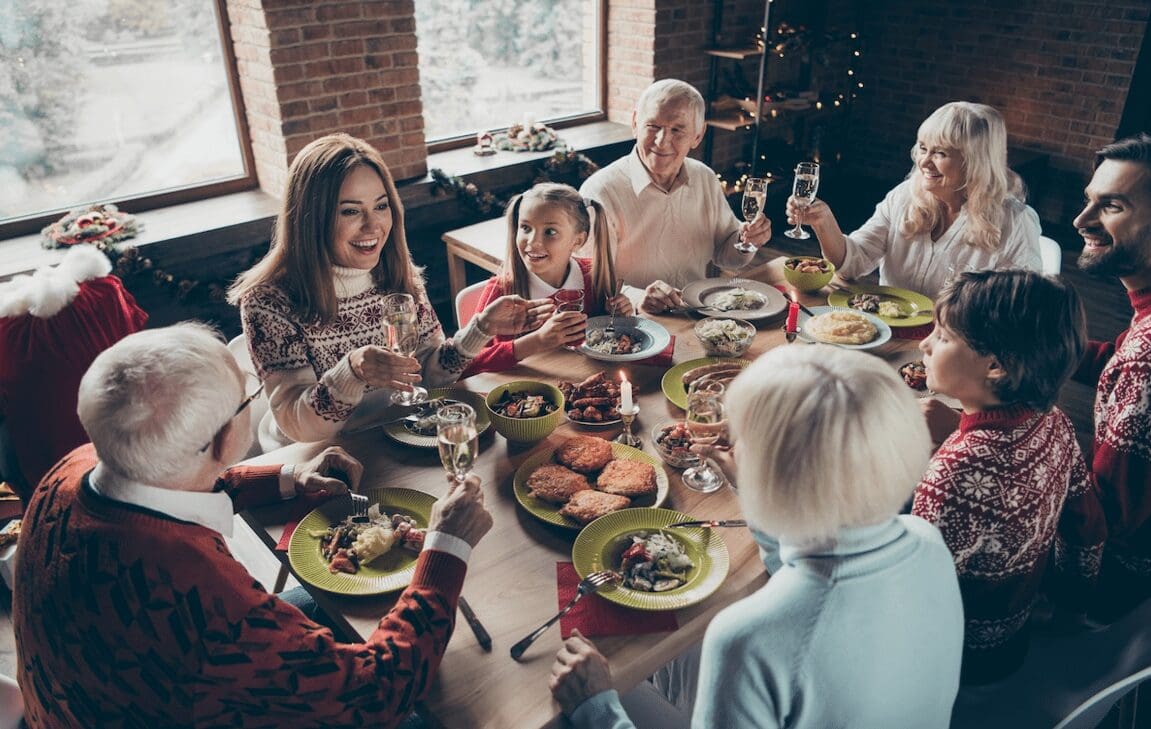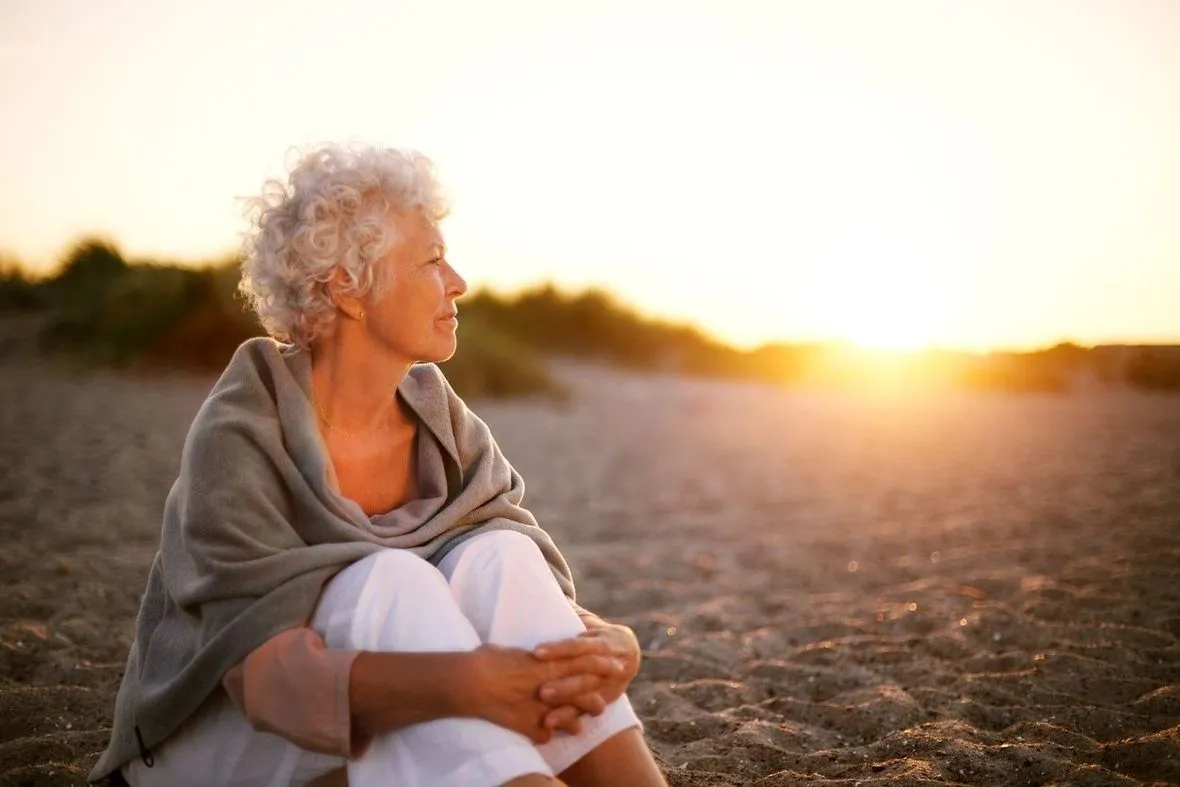
Preparing for the Holidays with Your Elderly Loved One
November 13th, 2024Companion Caregiver, Companion Senior Care, Elderly Care, In Home Care, Polish Care Services, Preparing for the Holiday,
The holiday season, with its joy and festivities, provides a perfect opportunity to cherish time with family, especially our elderly loved ones. However, for seniors, especially those requiring care, this time can also bring challenges. Here’s a comprehensive guide on how to prepare for the holidays, ensuring they are enjoyable and stress-free for everyone involved, focusing on the essential roles of companion caregivers and the broader scope of elderly care.
Understanding the Needs of Elderly During the Holidays
Health Considerations:
– Medical Needs: Before diving into holiday planning, review your loved one’s health with their healthcare provider. Ensure any necessary adjustments to medication or diet are made to fit the holiday schedule.
– Mobility: Consider how holiday festivities might impact mobility. If your loved one uses mobility aids, ensure they are in good condition.
Emotional and Social Needs:
– Isolation: Holidays can be particularly isolating for seniors. Plans should include ways to engage them socially.
– Memory Issues: For those with cognitive impairments like dementia, routine is key. Introduce holiday changes gradually.
The Role of Companion Caregivers
Companionship:
– Engagement: Companion caregivers can play a pivotal role in keeping seniors engaged. Activities could range from crafting holiday decorations to watching classic holiday movies together.
– Outings: If feasible, outings to see holiday lights or community events can be delightful, with caregivers ensuring safety and comfort.
Support in Daily Activities:
– Meal Preparation: Holiday meals might require different preparations. Caregivers can assist in cooking or adapting recipes to meet dietary needs without losing the festive spirit.
– Personal Care: Ensuring that personal care routines continue amidst holiday busyness is crucial for maintaining health and comfort.
Planning and Execution
Early Start:
– Shopping: Begin shopping early to avoid the last-minute rush, which can be overwhelming for seniors. Online shopping with caregivers can be a fun activity or a necessary convenience.
– Decorations: Involve your loved one in decorating to the extent they can. This not only makes them feel included but can also stimulate memory and cognitive functions.
Safety First:
– Home Environment: Ensure the home is safe for holiday activities. Secure decorations, manage cords to prevent tripping, and consider the placement of the Christmas tree or menorah to avoid fire hazards.
– Emergency Plan: Have an emergency plan in place. Know where the nearest hospital is, have emergency numbers accessible, and ensure caregivers are briefed on any specific health concerns.
Celebrating Together
Adapting Traditions:
– Simplifying: Sometimes, traditional celebrations might need scaling down. Focus on what truly matters; for instance, a small, intimate gathering might be more comforting than a large party.
– Inclusion: If your loved one can’t participate in every event, find ways to include them, like video calls during family gatherings.
Special Activities:
– Memory Sharing: Encourage storytelling sessions where seniors can share past holiday memories. This not only entertains but also preserves family history.
– Crafts and Cooking: Involve them in holiday crafts or simple cooking tasks they can manage, promoting a sense of contribution and creativity.
Caregiver Support
Respite for Family Caregivers:
– Professional Help: Consider hiring professional care during peak holiday activities to give family caregivers a much-needed break.
– Self-Care: Remind family caregivers to look after their own well-being, ensuring they also enjoy the holidays.
Training and Preparation:
– Handling Emergencies: Ensure caregivers are trained in first aid and know how to manage holiday-specific emergencies like food poisoning or falls.
– Cultural Sensitivity: If your traditions involve specific cultural practices, ensure caregivers are sensitive to these, enhancing the experience for everyone.
Technology in Elderly Care
Digital Engagement:
– Virtual Gatherings: Use technology to connect with family members who can’t visit in person. Caregivers can assist in setting up video calls or teaching seniors how to use these tools.
– Health Monitoring: Utilize health apps or devices to keep track of vitals or medication schedules, which can be particularly helpful during the chaotic holiday season.
Post-Holiday Care
Recovery and Reflection:
– Rest: After the festivities, ensure there’s ample time for rest. The excitement can be exhausting for the elderly.
– Review: Reflect on what worked well during the holidays and what could be improved for future celebrations, keeping notes for next year.
Conclusion
Preparing for the holidays with an elderly loved one involves a delicate balance of celebration, care, and safety. By leveraging the support of companion caregivers, embracing senior care practices, and adapting to the unique needs of elderly care, you can create a holiday season that is not only memorable but also nurturing. This time of year can become a cherished period where love, care, and tradition intermingle, providing warmth and joy to all, especially those who might need a little extra attention during the festive times. Remember, the goal isn’t just to celebrate, but to do so in a way that honors and includes our elderly loved ones in every possible way. Polish Care Services provide non-medical assistance to seniors and disabled to enjoy quality of life, please contact us for more information.

Caring for Seniors: Music and Health Benefits for Seniors
December 15th, 2020Caregiver Employment, Caregiver Service, Preparing for the Holiday, Retirement Plans for Seniors, Senior Living, Senior Services, Seniors, Uncategorized,
Caring for Seniors: Music and Health Benefits for Seniors
Music is beneficial for everyone. There’s always a song that makes each person that hears it feel something. But for seniors suffering from Alzheimer’s or dementia, it is especially beneficial. It allows them to access parts of their mind that might be unreachable otherwise. Here’s how music helps seniors when they need it the most.
What Music Therapy Does
Music therapy is part of what some experts refer to as entertainment. When people start to listen to music, it allows them to focus on it and feel more relaxed. This facilitates better physical and emotional processing so that everything from medications to feeling emotions is more effective. It’s used in care settings to help bring about change for therapeutic reasons, spiritual ones, or emotional ones.
This is why music therapy is used in a wide variety of care settings including long term care communities, rehab centers, hospice, and in home senior care. It helps people manage conditions like chronic pain and Alzheimer’s disease. In Finland, doctors studying its effects found that survivors of a stroke who listened to music every day improved their auditory memory, mood, verbal memory, and focus.
How Music Therapy Helps Seniors with Dementia and Alzheimer’s
Melody has a profound effect on people with Alzheimer’s and dementia and it is like a medicine for seniors with these conditions. Some studies have shown increased eye contact, communication, and happiness. It’s also shown that elderly people are less fatigued and that music helps regulate sleep, due to higher melatonin levels, if music is listened to regularly. Seniors are more likely to walk further when exercising and keep a better pace as well.
For those in the later stages of the disease, music therapy has shown to decrease stress and agitation while increasing relaxation and responses.
Caregiver Benefits from This Therapy
Caregivers also benefit from music therapy. Listening to songs with seniors who have Alzheimer’s or dementia helps lighten the mood. Plus it creates a connection with the client or loved one and helps the two communicate without needing to use words. Caregivers can use music to make the daily routine they go through with clients or loved ones easier by creating a connection. Most importantly, music helps improve the bond between caregiver and elder that can fray due to stress.
If you or someone you know need help caring for an elder with Alzheimer’s or dementia, contact Polish Care Services. Our team of care experts will be happy to help match you with a caregiver who meets your needs.

Caring for Seniors: Caring for Seniors During Changing Seasons
September 7th, 2020aging in place, Alzheimer's Care, Caregiver Service, Companion Caregiver, Companion Senior Care, Home Care, In Home Care, Preparing for the Holiday, Retirement Plans for Seniors, Senior Care Services, Senior Living, Senior Services, Seniors, Summer Activities for Seniors, Uncategorized,
As we head into another time of the year, start thinking about long term care for seniors at home during each season. Every time of the year has unique challenges for the elderly population. Keep reading to learn how to care for seniors during season change such as autumn, winter, spring, and summer.
Care During Autumn
Autumn is the season to prepare in-home care clients for the winter ahead. The flu season officially begins in October. So start asking your client’s family or nurse to arrange for a flu vaccine in September or early October. Go through the client’s over-the-counter medicines and get rid of any cold-related medication or supplies that have expired. Replace the expired supplies and stock up on other things like tissues, cough drops, and nose spray if applicable.
Fill the pantry with cans of healthy soups and find recipes for warm dishes that can be put in the crockpot for easy meals. Fix any drafty spots in the house.
Don’t forget to go through existing cold weather clothes and replace anything that’s no longer wearable. Make sure the client has enough socks, sweaters, warm pajamas, and blankets to keep them cozy.
Care During Winter
Winter is the coldest time of year and can present the most risk to seniors at home with increased fall risks and household risks. One of the most important steps to take is to prepare the home for winter. Caregivers should notify the client or their family of any potential hazards around the home such as a lack of fire extinguishers around the fireplace, stairs that present a fall hazard when wet, or carbon monoxide detectors in need of batteries.
Make up an emergency kit with a flashlight, warm blankets, a radio, backup batteries, water, and nonperishable food to last for several days in case in-home visits cannot be made. Install non-slip mats under rugs and in any room where the client may slip and fall. Keep shoes on mats inside the house to keep puddles from forming on the floor if they’re wet. Finally, keep areas well-lighted as it gets dark to prevent clients from falling over objects.
Care During Spring
Spring is a season of fresh starts and is a time for caregivers providing in-home senior care to reassess things in the home. Examples of this include making sure that the medication list for the client is current and has all prescribed medications as well as vitamins or supplements. Any expired or discontinued medications should put in a separate location until a family member or client’s home care nurse can look at them or disposed of if possible.
Evaluate the rooms used by the client for any repairs or improvements to be made. Consider installing grab bars and non-slip mats in the bathroom, putting appliances and dishes within easy reach in the kitchen, and installing a nightlight in the bedroom. Move clothes and grooming items within reach for the client to use and make sure they can reach the phone or medic-alert devices from the bed.
Lastly, secure cords out of the way and get rid of clutter in the home that presents an ambulation hazard.
Care During Summer
When the weather begins to heat up, seniors face new challenges. Heat can put added stress and pressure on the elderly. It’s best to keep them cool and indoors. Avoid any strenuous activities. If the client wants to do a physical activity like take a walk, it’s best to do it early in the morning while it’s still cool. Keep them hydrated throughout the day with water and avoid drinks with alcohol or caffeine in it. Encourage wearing light layers and keep the home cool by running a fan or using solar curtains.
Prepare meals that are light and healthy like salads and avoid heavy meals. Stock up on popsicles or other frozen items that help keep clients hydrated and cool. Offer a cool shower or bath to help beat the heat and use a cool washcloth on the back of the neck when sitting to help alleviate feeling hot.
If the client wants to go out, go to places with air conditioning like a library, coffee shop, or mall.
Every season has its care benefits and care challenges. The most important thing to remember is to prepare in advance. The more prepared a caregiver is for each season, the less stressful it will be for the senior. If you’re looking for a thoughtful and prepared caregiver, contact Polish Care Services. Our staff will be happy to match our caregivers to your loved ones.
